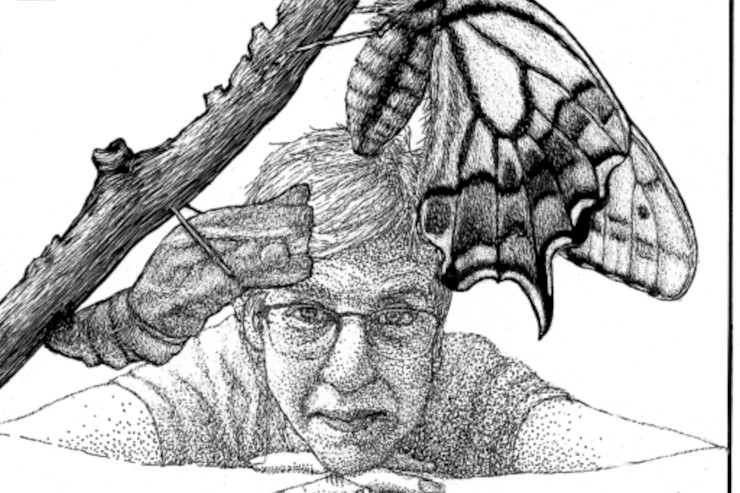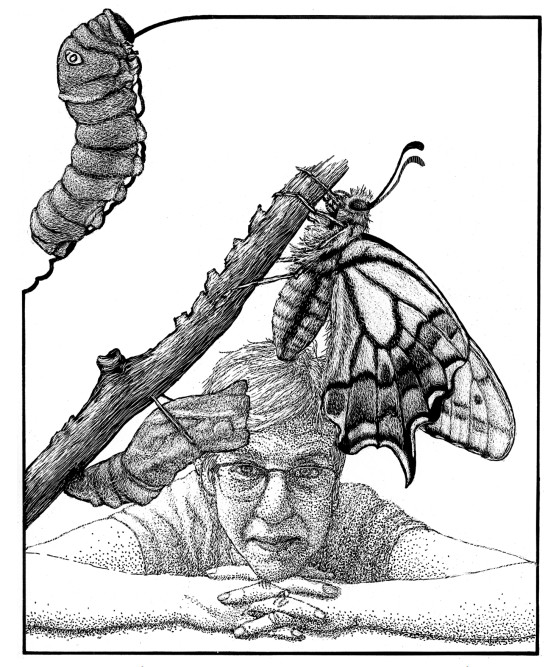
I love butterflies. They’re like little artistic stained glass windows flitting about the flowers and vegetables. They’re helpful, too. Though they aren’t the pollinators that bees are, butterflies do their part. Caterpillars, on the other hand … Let’s just say I’m not overly fond of caterpillars in my garden.
Yes, I know you don’t get butterflies without caterpillars. But some caterpillars eat everything! After all, there’s a children’s book called The Very Hungry Caterpillar, in which the protagonist, a caterpillar, eats its way through the entire book. Whenever I see them, I just try to picture butterflies and let them be.
While I might not prefer caterpillars in my garden, Liz Rasley has a very different approach. In her story, Birthing Butterflies, she shares the story of how she adopted some Swallowtail Butterfly eggs. I wouldn’t imagine too much would go into watching butterfly eggs. Liz didn’t think so, either. It turns out, that’s not true at all!
“After several weeks of being a new mom again, fretting over the light/time/air temperature and other miscellaneous requirements of these new babies called butterfly eggs, I’m here to say that any living thing, really, is an undertaking.”
There’s so much more, too, that comes with caring for nature. As Liz points out, “sometimes nature is so chock full of unbridled hope that it catches you completely off guard.”
This story is a good reminder of how precious and wonderful nature is, even when that means eating everything in sight.
Caterpillars in My Garden or Your Garden are Just One Source of Beautiful Gardening Stories
This story comes from our archive that spans over 30 years, and includes more than 130 magazine issues of GreenPrints. Pieces like these that turn stories of healing gardens into everyday life lessons always brighten up my day, and I hope this story does for you as well. Enjoy!

Birthing Butterflies
Sometimes nature catches me completely off guard.
By Liz Rasley

The world is still full of so many wonders. I have to remind myself of this on days when watching the news makes my chest tighten.
Liz, I chide myself, move.
I do. I stand up, step outdoors—and spot courting blackbirds gleefully circling over the tops of my crepe myrtles. See? I tell myself, life is still full of miracles. Oh, how small these wonders often are. And how often they crop up where we least expect it.
A couple of Springs ago, one of my sweet, thoughtful friends here in Texas asked if we’d like to care for swallowtail butterfly eggs that she’d found while prepping her lawn for mowing.
I’ll admit I was amazed, first, by how she was able to see them (bet she didn’t use her reading glasses to examine the leaves, like I would have) and then, that I would be the first she asked to care for these eggs, a compliment—and one that didn’t feel like it would take a bunch of work or time. I was certain they would be the lowest-maintenance living thing on my list, considering how much effort caring for kids, a dog, a husband, a garden, and the other random stuff that comes along (hamster, laundry, etc.) takes. Well.
After several weeks of being a new mom again, fretting over the light/time/air temperature and other miscellaneous requirements of these new babies called butterfly eggs, I’m here to say that any living thing, really, is an undertaking.
Even now, as I fertilize my flowering pumpkin patch, it’s not lost on me, the effort to care well for all living things, down to their watering patterns and how often you need to buy them shoes. Back to the butterflies: they hatched, eventually. From eggs came yellow- and black-striped pudgy caterpillars, eating everything in sight for what seemed like eons.
During that particular phase of their life, I kept getting up at night and pacing—are they fat enough yet? Do they have enough food? Was that the proper type of green leaves? Do they need more? What about the light? While I had told myself I had gotten these eggs-now-caterpillars for our kids, what ended up happening was that I got to tend to them. Caretaking, it seemed, was going to be a delayed-onset instinct with my own offspring.
One day I woke up charged, for no real reason. It felt like a big day. Several weeks before, I had watched the chunky caterpillars form into chrysalises, so from all my projected arrival dates (some calculated logically most felt in my heart), I figured today might be the day for a butterfly to emerge.
And then, as I was ambling out in the garden, one of them hatched. Hatched!
I scurried over to look. With silent tears, I watched as the butterfly, new and fresh, awkwardly stumbled on delicate legs and cracked open its wings. I cried in joy.
Not since my own children were born had I been so moved. But here I was—crying over this totally mundane (yet extraordinary) act of nature, a chrysalis turning into a butterfly. If a reporter had been privy to this, the news headline might have read:
Middle-aged Woman in Slippers Found Crying
Over Caterpillars and Butterflies in Backyard
Am I proud of that? No. But sometimes nature is so chock full of unbridled hope that it catches you completely off guard. Even before you’ve changed out of slippers.
That year, as I watched several caterpillars turn into butterflies, I recalled my own children being born, and the fresh bite of new hope—unrestrained, unburdened, non-weary hope. It inspired such a deep, innocent expectation in me. To this day, I haven’t found anything as hopeful as the birth of new things—whether that be new babies, butterflies, or even the hopeful, courageous, strong green sprout that appears when you had long figured it was dead.
This year, I’m again looking for butterfly eggs. It’s about the right season for them. I haven’t found any yet, but I haven’t given up. Truth be told, not seeing eggs may be an indication of my eyeglass prescription needing to be amped up more than anything else. I may feel young with hope, but my eyes are still middle-aged.
Sitting on the porch, I see monarchs, traveling up through Texas by way of our backyard. And more than once, I’ve thought about hope, wonder, and how nature is at once so completely ordinary, mundane, and yet overflowing with wonders—full of miracles we deem ordinary and take for granted.
Seems like there is a big lesson in there. For me, at least. ❖
By Liz Rasley, published originally in 2023, in GreenPrints Issue #133. Illustrated by Patricia Savage

What kind of gardening stories do you have? Are any of them stories about caterpillars or butterflies?




Beautiful! I also have caterpillars in my garden and I do not mow or poison anything from plants to animals. If the little fuzzies are in one of the trails I gently move it to the nearest grass or bush. They are truly amazing and I love them.